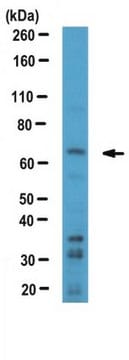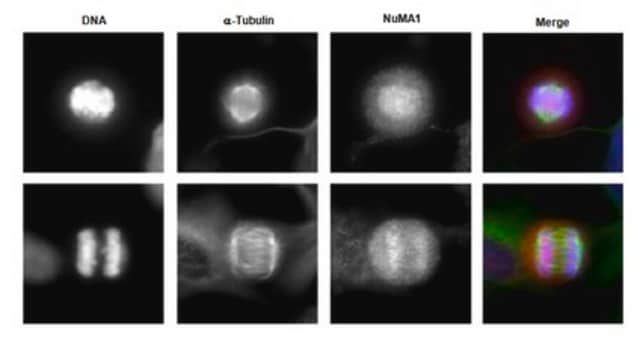354R-1
TFE3 (MRQ-37) Rabbit Monoclonal Antibody
About This Item
Javasolt termékek
biológiai forrás
rabbit
Minőségi szint
100
500
konjugátum
unconjugated
antitest forma
culture supernatant
antitest terméktípus
primary antibodies
klón
MRQ-37, monoclonal
leírás
For In Vitro Diagnostic Use in Select Regions (See Chart)
Forma
buffered aqueous solution
faj reaktivitás
human
kiszerelés
vial of 0.1 mL concentrate (354R-14)
vial of 0.5 mL concentrate (354R-15)
bottle of 1.0 mL predilute (354R-17)
vial of 1.0 mL concentrate (354R-16)
bottle of 7.0 mL predilute (354R-18)
gyártó/kereskedő neve
Cell Marque™
technika/technikák
immunohistochemistry (formalin-fixed, paraffin-embedded sections): 1:50-1:200
izotípus
IgG
szabályozó
ASPS, melanoma
kiszállítva
wet ice
tárolási hőmérséklet
2-8°C
vizualizáció
nuclear
Géninformáció
human ... TFE3(7030)
Általános leírás
Minőség
 IVD |  IVD |  IVD |  RUO |
Kapcsolódás
Fizikai forma
Elkészítési megjegyzés
Egyéb megjegyzések
Jogi információk
Nem találja a megfelelő terméket?
Próbálja ki a Termékválasztó eszköz. eszközt
Válasszon a legfrissebb verziók közül:
Analitikai tanúsítványok (COA)
Nem találja a megfelelő verziót?
Ha egy adott verzióra van szüksége, a tétel- vagy cikkszám alapján rákereshet egy adott tanúsítványra.
Már rendelkezik ezzel a termékkel?
Az Ön által nemrégiben megvásárolt termékekre vonatkozó dokumentumokat a Dokumentumtárban találja.
Tudóscsoportunk valamennyi kutatási területen rendelkezik tapasztalattal, beleértve az élettudományt, az anyagtudományt, a kémiai szintézist, a kromatográfiát, az analitikát és még sok más területet.
Lépjen kapcsolatba a szaktanácsadással








